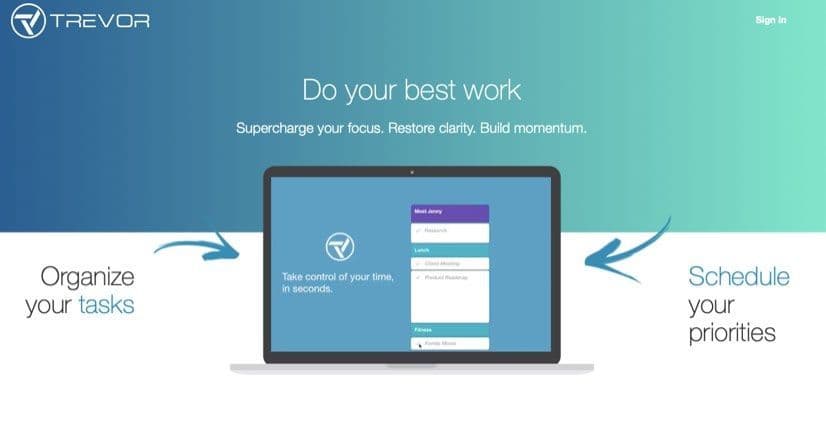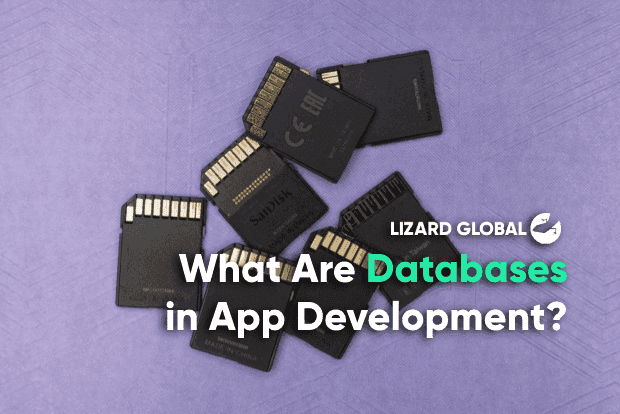artificial intelligence
machine learning
+ 5 more ...
5 Implementations of AI in Applications
24 Jun 2020
by Lotte, Digital Content Specialist
24 Jun 2020
by Lotte, Digital Content Specialist
artificial intelligence
machine learning
digital transformation
automation
robotics
app development
applications
5 Implementations of AI in Applications
Table of contents
Contact us
We will get back to you in the next 48 hours.

Artificial intelligence is increasingly used in app development, and with a good reason. AI-powered apps can greatly improve our lives for the better, and take our businesses to the next level.
More and more aspects of our lives are being automated and taken over by machines with the aim to improve productivity and reduce human error. In our blog about business process automation, we’re showcasing how technology can improve the overall functioning of businesses in all industries. Besides providing efficient solutions for businesses, artificial intelligence and machine learning also radically impacts our personal lives and habits.
Apps built with the technology of AI and ML provide an immersive user experience we have never encountered before, other than their appearance in futuristic science fiction movies. However, we are coming closer to the point where we don’t refer to them as fiction anymore. Businesses and individuals find themselves in the middle of a technological revolution, and although there are enough stories describing disastrous consequences of AI and ML, there are quite some benefits to it.
Smart applications and the Internet of Things
AI can be applied to the so-called “Internet of Things” (IoT), which can be described as the network of devices connected through the internet. Because these devices are connected through the same network, they recognize each other and can interact with one another. When implementing AI in the IoT, we get the AIoT. When artificial intelligence is added to the Internet of Things it results in a network of devices that can analyze data, make decisions, and act on their data analysis without the interference of humans.
The implementation of AI in smart home gadgets have entirely changed the way we live and work. Using AI in mobile applications allows users to remotely command their household gadgets, from vacuum cleaners to automated curtains, the possibilities are endless. The intelligence of AIoT enables the analysis of data that can later be used to learn from and make better decisions in the future. This way, devices are learning on their own, and are continuously improving without human effort.
Productivity and efficiency
We already know that mobile applications can greatly improve our productivity. Implementing artificial intelligence in productivity applications can save you loads of time and effort. Not only does it possess the ability to take over tedious tasks, like organizing your mailbox and automating the scheduling of content posting. Its ability to learn from users and predict their future behaviour can automate and take over services that formerly relied heavily on human influence, like customer service. Chatbots and automated online newsletters take over the communication between businesses and customers, and are built in such a way that they can offer an improved service. Besides being able to offer an improved customer experience, it also leaves more time for employees to fully focus on tasks that need their attention.
An increasing amount of productivity apps are implementing artificial intelligence. This technology is very useful for to-do lists and planners. A great example of a productivity app using AI technology is Trevor, which is an application specially designed for task management and personal planning. The app connects your to-do list with your calendar. Users can tell Trevor what tasks have a priority, and the app looks through your calendar and suggests a moment to perform this task, based on your existing schedule.

Optimized user experience
Implementations of AI and ML in applications are greatly improving the overall user experience. AI and machine learning technologies have the ability to learn about human behaviour and act on it. The awareness of the behavioral patterns of users makes these technologies able to create an insight into the interests and preferences of users, and recommend content based on their previous behavior. Popular streaming applications like Netflix and Spotify use AI technologies in user profiling, in order to recommend movies, series, and music that users might find interesting.
Another implementation of AI to improve the overall user experience is the use of chatbots. Tawk.to is a chatbot that allows users to ask questions in a designated chat box that’s implemented in the interface of a website with a simple line of Javascript within the HTML code. Having a chatbot on your website lowers the threshold for visitors to ask questions, compared to going through the struggle of filling in a contact form and waiting for a response. An optimized user experience has as a result that users are more likely to install an application and keep coming back to it. In other words, implementing AI in your application increases the user attraction and retention, and therefore the overall success of your product.
Natural Language Processing and Conversational User Interfaces
Natural Language Processing, or NLP, is the technology that is used to help computers and machines understand the human language. It is a branch of artificial intelligence, and focused fully on the interaction between computers and humans, using “natural language” such as plain English. The ultimate goal of NLP is for computers to be able to read, comprehend, and make sense of the human languages in such a way they can use it to improve the interaction with humans and understand human behaviour. Most NLP technologies heavily rely on machine learning in order to apply meaning to words and sentences.
NLP technology is also used for so-called Conversational User Interfaces (CUIs), which are digital interfaces that allow users to interact and communicate with a product or service, based on the principles of human language and interaction. Examples of CUIs are applications like Siri and Alexa, which are designed and developed to recognize and understand human voices, and perform actions based on the commando they receive. Overall, the main idea behind CUIs and NLP is to create a seamless and simple communication between customers and a technological device.
Education
Artificial intelligence is being increasingly implemented in educational applications to make the lives of both teachers and students a little easier. There are many ways to implement AI in educational applications. For example, AI-powered apps can automate the task of reviewing and grading assignments, so teachers have more time to focus on their curriculum. Outsourcing tedious tasks like these can radically lower the level of stress among teachers, which proved to be an ongoing problem. Besides decreasing stress, applications like these have the potential to increase the quality of teaching, and with that the overall results of students.
Another way of implementing artificial intelligence in educational applications is by teaching these apps to personally mentor students. With the support of machine learning, apps like these can learn about their users’ behaviour and preferences, and create a learning environment tailored to that particular student. Think of automating plannings and schedules, recommending personalized content explaining certain subject matters, and letting students keep track of their progress. By combining the power of AI technology with gamification, applications can greatly stimulate the interaction between students and their subject matter in a fun and exploratory way.
AI at Lizard Global
At Lizard Global, we are aware of the immense impact the implementation of artificial intelligence in application can have on society. Not only do we give more and more tasks out of hand, which leaves more time to focus on more important matters. It also has the potential to change the way we look at education and how we absorb new information. Our skilled developers have already guided our customers through the process of creating AI-powered applications, and we gladly help you too. Are you curious about how we can help you develop your app idea with the implementation of AI? Don’t hesitate to contact us on our social media channels or website for more information.

Artificial intelligence is increasingly used in app development, and with a good reason. AI-powered apps can greatly improve our lives for the better, and take our businesses to the next level.
More and more aspects of our lives are being automated and taken over by machines with the aim to improve productivity and reduce human error. In our blog about business process automation, we’re showcasing how technology can improve the overall functioning of businesses in all industries. Besides providing efficient solutions for businesses, artificial intelligence and machine learning also radically impacts our personal lives and habits.
Apps built with the technology of AI and ML provide an immersive user experience we have never encountered before, other than their appearance in futuristic science fiction movies. However, we are coming closer to the point where we don’t refer to them as fiction anymore. Businesses and individuals find themselves in the middle of a technological revolution, and although there are enough stories describing disastrous consequences of AI and ML, there are quite some benefits to it.
Smart applications and the Internet of Things
AI can be applied to the so-called “Internet of Things” (IoT), which can be described as the network of devices connected through the internet. Because these devices are connected through the same network, they recognize each other and can interact with one another. When implementing AI in the IoT, we get the AIoT. When artificial intelligence is added to the Internet of Things it results in a network of devices that can analyze data, make decisions, and act on their data analysis without the interference of humans.
The implementation of AI in smart home gadgets have entirely changed the way we live and work. Using AI in mobile applications allows users to remotely command their household gadgets, from vacuum cleaners to automated curtains, the possibilities are endless. The intelligence of AIoT enables the analysis of data that can later be used to learn from and make better decisions in the future. This way, devices are learning on their own, and are continuously improving without human effort.
Productivity and efficiency
We already know that mobile applications can greatly improve our productivity. Implementing artificial intelligence in productivity applications can save you loads of time and effort. Not only does it possess the ability to take over tedious tasks, like organizing your mailbox and automating the scheduling of content posting. Its ability to learn from users and predict their future behaviour can automate and take over services that formerly relied heavily on human influence, like customer service. Chatbots and automated online newsletters take over the communication between businesses and customers, and are built in such a way that they can offer an improved service. Besides being able to offer an improved customer experience, it also leaves more time for employees to fully focus on tasks that need their attention.
An increasing amount of productivity apps are implementing artificial intelligence. This technology is very useful for to-do lists and planners. A great example of a productivity app using AI technology is Trevor, which is an application specially designed for task management and personal planning. The app connects your to-do list with your calendar. Users can tell Trevor what tasks have a priority, and the app looks through your calendar and suggests a moment to perform this task, based on your existing schedule.

Optimized user experience
Implementations of AI and ML in applications are greatly improving the overall user experience. AI and machine learning technologies have the ability to learn about human behaviour and act on it. The awareness of the behavioral patterns of users makes these technologies able to create an insight into the interests and preferences of users, and recommend content based on their previous behavior. Popular streaming applications like Netflix and Spotify use AI technologies in user profiling, in order to recommend movies, series, and music that users might find interesting.
Another implementation of AI to improve the overall user experience is the use of chatbots. Tawk.to is a chatbot that allows users to ask questions in a designated chat box that’s implemented in the interface of a website with a simple line of Javascript within the HTML code. Having a chatbot on your website lowers the threshold for visitors to ask questions, compared to going through the struggle of filling in a contact form and waiting for a response. An optimized user experience has as a result that users are more likely to install an application and keep coming back to it. In other words, implementing AI in your application increases the user attraction and retention, and therefore the overall success of your product.
Natural Language Processing and Conversational User Interfaces
Natural Language Processing, or NLP, is the technology that is used to help computers and machines understand the human language. It is a branch of artificial intelligence, and focused fully on the interaction between computers and humans, using “natural language” such as plain English. The ultimate goal of NLP is for computers to be able to read, comprehend, and make sense of the human languages in such a way they can use it to improve the interaction with humans and understand human behaviour. Most NLP technologies heavily rely on machine learning in order to apply meaning to words and sentences.
NLP technology is also used for so-called Conversational User Interfaces (CUIs), which are digital interfaces that allow users to interact and communicate with a product or service, based on the principles of human language and interaction. Examples of CUIs are applications like Siri and Alexa, which are designed and developed to recognize and understand human voices, and perform actions based on the commando they receive. Overall, the main idea behind CUIs and NLP is to create a seamless and simple communication between customers and a technological device.
Education
Artificial intelligence is being increasingly implemented in educational applications to make the lives of both teachers and students a little easier. There are many ways to implement AI in educational applications. For example, AI-powered apps can automate the task of reviewing and grading assignments, so teachers have more time to focus on their curriculum. Outsourcing tedious tasks like these can radically lower the level of stress among teachers, which proved to be an ongoing problem. Besides decreasing stress, applications like these have the potential to increase the quality of teaching, and with that the overall results of students.
Another way of implementing artificial intelligence in educational applications is by teaching these apps to personally mentor students. With the support of machine learning, apps like these can learn about their users’ behaviour and preferences, and create a learning environment tailored to that particular student. Think of automating plannings and schedules, recommending personalized content explaining certain subject matters, and letting students keep track of their progress. By combining the power of AI technology with gamification, applications can greatly stimulate the interaction between students and their subject matter in a fun and exploratory way.
AI at Lizard Global
At Lizard Global, we are aware of the immense impact the implementation of artificial intelligence in application can have on society. Not only do we give more and more tasks out of hand, which leaves more time to focus on more important matters. It also has the potential to change the way we look at education and how we absorb new information. Our skilled developers have already guided our customers through the process of creating AI-powered applications, and we gladly help you too. Are you curious about how we can help you develop your app idea with the implementation of AI? Don’t hesitate to contact us on our social media channels or website for more information.







